
Microsoft codename 'Schnauzer Spittle' revealed
Call it life imitating art. One of my favorite pastimes is watching technology trends catch up with popular science fiction. Whether it's smartphones and tablets presaging Star Trek's ubiquitous communicators and PADDs or iRobots and Roombas hinting at our Star Wars maintenance droid-enabled future, I enjoy connecting the dots between various technology developments to see how they point the way towards a sci-fi inspired future.
Take this week, for example. Three seemingly unrelated stories -- Microsoft patenting "life streaming", Facebook tweaking the performance of its iOS app and the announcement of a Nokia-led alliance to promote more accurate indoor location services -- may together lay the foundation for myriad fantastical future applications.

Anti-Windows campaign is blathering blowhards' 15-minutes of fame
It's like some twisted reality TV show. As we draw closer to Windows 8's official release date, a parade of "D-List" industry luminaries has emerged to bash the product in exchange for their 15 minutes of fame. Names like Gabe Newell, a previously unknown co-founder from the equally obscure software firm Valve, have now become household names among the anti-Windows set. And while their arguments against Windows 8's success ring a bit hollow, the industry media is still eager to lap up every controversial quote.
Lest I be labeled just another kettle calling the pot names, I must confess that I indulged in my share of sensationalist Microsoft bashing back in the day. I made a career out of ripping Windows, first with the Vista debacle and later in the run-up to Windows 7. However, while my whining may have seemed a bit shrill at times, the underlying complaints were always based in fact -- for example, bugs with Vista's Plug & Play implementation that forced me to reinstall the OS and even lose data on multiple occasions.
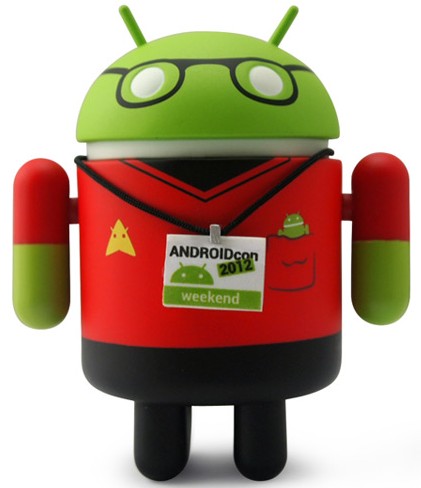
I'm an Android rooting addict
First in a series. I feel dirty. As I crawl my way up to my desk this morning, I get the sense that I'm somehow less than fresh. After all, I've just spent several days living on the very edge of Android's outer darkness, a place where evil lurks and "good" users know not to tread.
I'm speaking, of course, of the seedy underworld of Android device rooting, a subculture so far removed from the mainstream of computing that its denizens are hardly recognizable. It's a world that has always fascinated me. But as an outsider subject to the rules of "civilized" society, I could never fully understand the allure -- dare I say, the addiction -- that binds so many to this dark place.
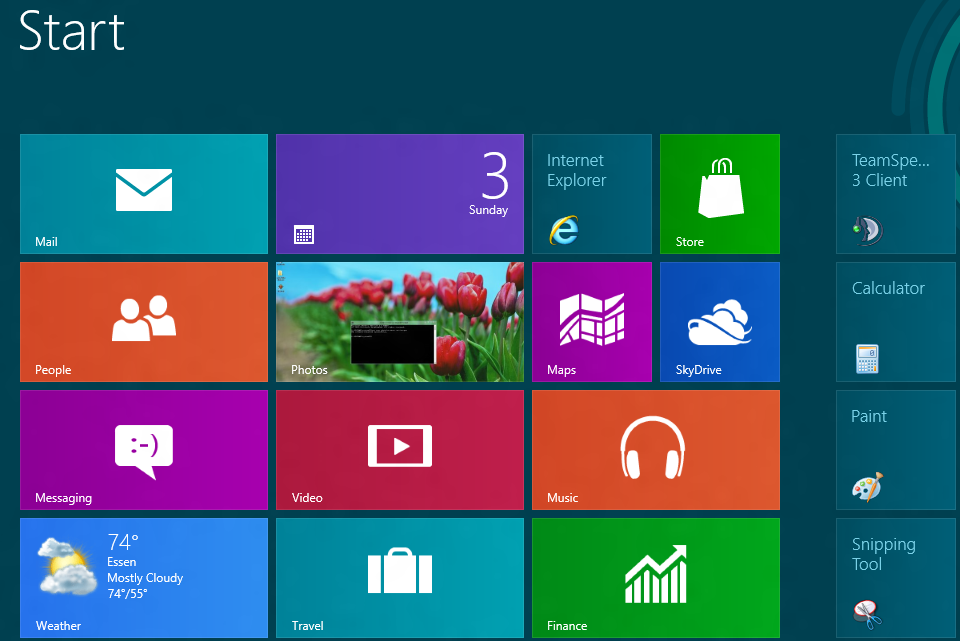
Is Microsoft planning to ditch Intel post-Windows 8?
It's a radical thought. What if Microsoft is secretly planning to ditch Intel? With all of the recent talk about Windows RT "PCs", distinctions between the consumer roles associated with RT-based devices and the more traditional PC roles normally reserved for Intel-based systems have become blurred.
Suddenly, usage scenarios and form factors that were firmly part of Intel's territory are being encroached upon by a cornucopia of non-x86 Windows offerings. And cheering them all on is the chip maker's longtime comrade-in-arms, Microsoft. The Redmond, Wash.-based behemoth has been looking for a way out of the Wintel duopoloy for some time now, and the combination of increasingly powerful ARM designs and a tepid response to Intel's Ultrabook campaign has given the company the perfect opportunity to step out on its old partner.
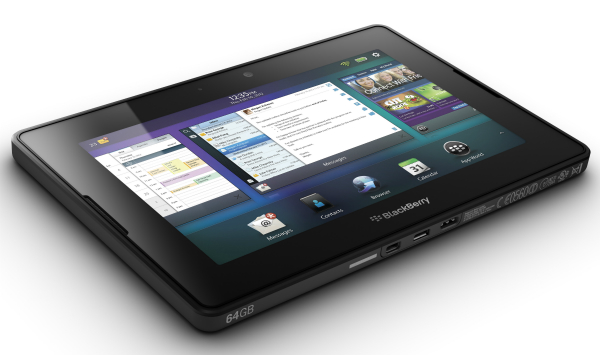
4G LTE BlackBerry PlayBook makes iOS and Android devices feel about as sophisticated as my daughter’s old 'Speak & Spell'
I love underdogs. Whether it’s David vs. Goliath, Rocky vs. Apollo Creed or Microsoft (circa 1992) vs. IBM, I enjoy rooting for the plucky upstart. Which is why I find the resurgence of interest surrounding Research in Motion's beleaguered PlayBook tablet all the more satisfying: Here is a product that stumbled out of the gate and was left for dead, only to slowly crawl its way back into the ring of respectability through a combination of raw talent and sheer force of will.
Make no mistake: The PlayBook was an impressive device when it first shipped in April, 2011. Bristling with class-leading technology, RIM’s first foray into the tablet market should have been an instant hit. However, the software half of RIM’s winning formula still wasn’t fully baked, with some glaring omissions (email, calendar) and few third party apps to speak of. And, in a truly ironic twist, many early critics actually panned the device for its smallish 7-inch form factor.
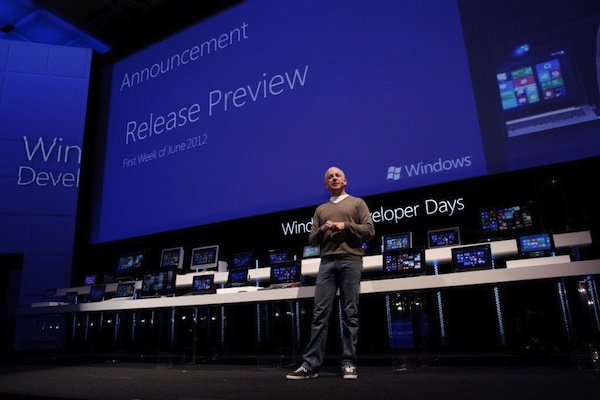
If you don't like the direction Microsoft is taking Windows 8, tough luck, Team Sinofsky knows they have you
Choice. It’s something that all free people crave. We want the right to choose, whether it’s what we eat, where we live or how we arrange our furniture. Generally speaking, we don’t like being told what to do. Nor do we like it when some impersonal agency imposes its will upon our freedoms.
Case in point: Microsoft’s decision to force users to boot to the Windows 8 Start Screen. Instead of giving us the option (choice) of going directly to the desktop, Microsoft divisional president Steven Sinofsky and friends are saying it’s “their way or the highway”. Any attempts to deviate from their approved usage model will not be tolerated, and if you try to code around us, we’ll shut you down. Period.

Windows 8 looks like it was designed by a bunch of two year-olds wired from watching too much Barney
I hate flat things. Flat tires. Flat musical notes. Flat soda bottles because my teenage son can't bring himself to tighten the cap properly. I just can't stand stuff that lacks in one dimension or another.
So you can imagine my reaction to the recently leaked screenshots of the final Windows 8 RTM build's UI. Not only has Microsoft done away with the last vestiges of Aero, the company has taken a virtual steamroller to the entire Windows landscape.

Why I (still) fear Android
It's a BlackBerry Playbook fan's penance. After months spent swiping away the nightmares from my early Android tablet experiences (think Honeycomb 3.xx on Galaxy Tab 10.1), I find myself once again staring into the dark abyss that is Google's nascent mobile OS.
The occassion? An impromptu evaluation of the Acer Iconia Tab A200 as a potential low-cost computing solution for secondary education. My wife and I looked at possible post-PC alternatives for use in a new private high school we're funding on our home island of Mauritius. The hope was that such a tablet, coupled with a wired or wireless (the A200 has a full-sized USB port) keyboard/mouse combo, could serve double duty as both a library reference device and a thin client for hosting RDP sessions into a Windows terminal services environment (still gotta teach those kids Microsoft Office).

PC-era dinosaurs: Beware the BYOD Extinction Level Event
Ah! Life in paradise. As the literal incarnation of the mythical "guy who ran away to a tropical island", I've had the joy of returning to my once primary (and now mostly vacation) home in the United States only to discover all of the things that can go wrong with an empty house in the Florida heat (this time, it was a failed A/C compressor -- ugh!).
However, I've also had the opportunity to revisit many of my core IT beliefs from the perspective of a relative outsider living in the slower-paced world of coconuts, litches and 2Mbps ADSL connections. Basically, my geographic isolation has forced me to take the long view on new technology trends. Which is why I'm so excited about the potential of BYOD: I see the emergence of the Post-PC phenomenon as a truly disruptive force that will forever change how people view "computers".

BYOD apocalypse deniers suffer from post-PC depression
It’s a form of denial. In my recent post on the Office team dissing Windows 8, I noted how the lack of full touch support in Office 2013 undermines Microsoft’s efforts to break into the Post-PC space. And while I expected some push back from the Redmond choir, I was surprised at how many readers seem to be having a hard time accepting the reality of the Post-PC phenomenon.
Simply put, the PC as a technology driver is dead. Yet some people -- most notably, IT professionals who fear the coming BYOD apocalypse -- are determined to prop-up the corpse, slap some lipstick on those rotting lips and pretend that it’s still 2009.

Office politics are killing Windows 8
A letdown. That's the only way to describe Microsoft's Office 2013 announcement. With the fate of the Windows ecosystem hanging in the balance, the Redmond, Wash.-based giant is doing what it always does when faced with a tough, course-changing decision: It’s playing internal politics.
On one side you have the Windows division. Right now, they're facing an existential crisis, with Apple and Google poised to dominate the emerging post-PC landscape. Division head Steve Sinofsky and his team need all the help they can get to crack into this new territory that threatens to subsume everything that came before.
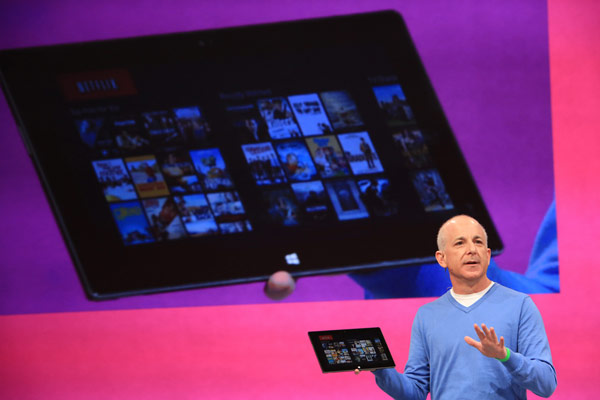
Only Microsoft Surface can compete with iPad on price
It’s an addiction. For nearly three decades, the PC industry has gorged itself on profit margins. Whether it’s a “premium” line of notebooks or the latest uber-gaming rig, vendors have always managed to squeeze enough margin out of their product offerings to line their respective silk purses. And who rides shotgun to this PC profit gravy train like some deranged, hypodermic-carrying monkey? Microsoft.
The Redmond, Wash.-based behemoth injected itself into the basic PC equation a generation ago, and it has milked the OEM license revenue stream ever since. Fortunately for them, average selling prices across the spectrum of PC categories helped offset this Microsoft addiction “surtax”. After all, what’s $70, $80 or $100 when the system in question retails somewhere just north or south of the $1,000 mark?

Piracy is killing Android
It sounds like a silly question. After all, Android is more popular than ever, with new “hero” phones and tablets arriving almost every week. However, for all of the platform’s success, there’s one aspect that remains a lingering blight on Google’s otherwise shiny success story: Software piracy.
Simply put, the rampant piracy of apps on “rooted” Android devices is killing developer momentum, with many devs resorting to unpopular and often intrusive in-app advertising and other gimmicks to make up for the gap in traditional Google Play revenue. And with the Android enthusiast community seemingly obsessed with “rooting” every new device that comes to market -- thus making it easier for unscrupulous users to pirate apps and/or bypass normal app security mechanisms -- the problem only gets worse.
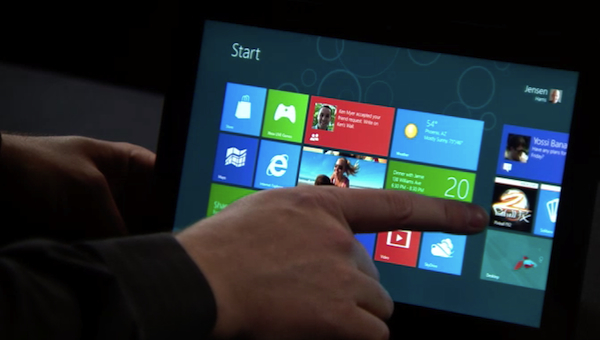
What if Windows 8 fails?
It’s the hypothetical scenario many IT pros try to ignore: What if Microsoft’s Windows 8 launch is a dud? What if Surface is a flop, the $40 upgrade promotion fizzles and all of those slick new Windows RT tablets don’t fly off the shelves?
Given today’s consumer-driven BYOD IT culture, it’s a very real possibility. The Windows ecosystem simply doesn’t hold the gravitas it once did, with users finding every possible excuse to cut the enterprise cord and dump their clunky old IT-issued laptops and desktops. It’s like the cold war-era Soviet Union facing off against Western society: Once the populace got a taste of Levis and free speech, there was no holding them back.

Is Microsoft trying to kill BYOD?
IT news comes in fast. Sometimes it takes us a while to process it all. In the blur of competing headlines, critical trends become obscured, and seemingly disconnected events -- when viewed through the prism of a few days rest and a good cup of tea -- can suddenly seem interrelated.
Consider the past two weeks. First, Microsoft drops the Surface bombshell, including news that only one of the devices -- the Windows RT version -- will be ready in time for the holidays. Then, on the heels of much hand wringing over Google’s Nexus 7 and its impact on the BYOD movement, PC stalwart Hewlett Packard reveals that it won’t be shipping any Windows RT tablets, at least not in the short term. Again, seemingly disconnected events -- yet when you pull them all together they lead to one inexorable conclusion: Microsoft hates BYOD.

